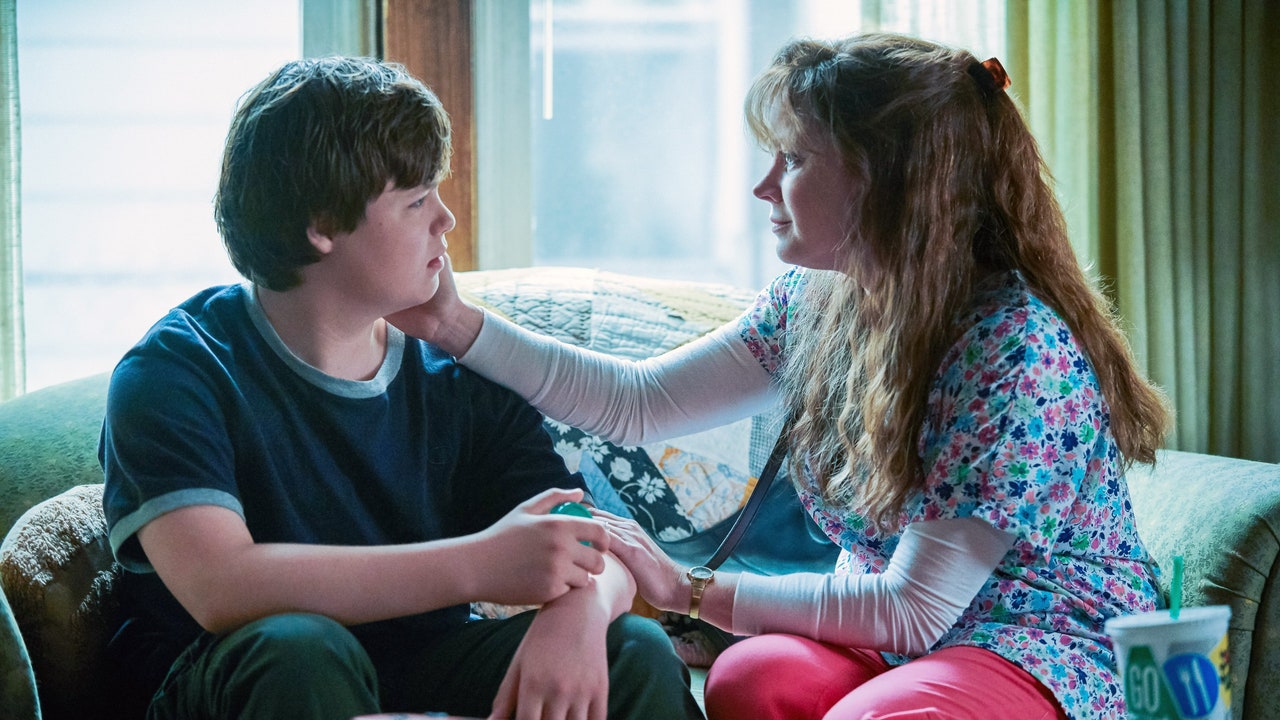They call them Hollywood fantasies for a reason: Vanishingly few people become characters in a big-studio, star-laden movie that makes something exciting, romantic, or inspiring out of the messy raw materials of their actual lives. When these projects do happen, whether they’re a valorizing ego-high for the subject or an embarrassing aggrandizement, they sometimes win Oscars—and technically those awards go to the financiers and makers of the film, but they also confer a certain level of additional prestige on a biopic’s subject. Did the Academy of Motion Picture Arts and Sciences give Rami Malek an award for Bohemian Rhapsody because they personally love Rami Malek and await his starring roles in additional future films? Moreover, did that movie win Best Editing because it had the best editing of anything else released in 2018?! No, of course not. It won those awards mainly because people really love Freddie Mercury, and the movie got out of its own way long enough to offer a passable impression of him. Mercury may not be around to enjoy that dubious honor, but it seemed like more than enough for the other guys from Queen.
J.D. Vance is not a beloved musician, though his chosen moniker sounds a bit like someone with a third-tier boy-band career in their closet. He is, at present, very possibly the next Vice President of the United States, as handpicked by Republican nominee Donald Trump. Vance didn’t need to ascend to wherever they keep the V.P. office (whoa, the actual West Wing? Good for them!) to receive the biopic treatment. He got one just after the last presidential election cycle, when Netflix released a film based on his memoir Hillbilly Elegy in November 2020. With Vance’s veep candidacy now in full swing, the movie has naturally spiked on the Netflix charts, thanks to viewers looking for answers to questions like “How bad could a movie with such a big part for Amy Adams be?”
The pressing answers about J.D. Vance, we know already, no particular thanks to the Ron Howard-directed movie. In keeping with Howard’s milquetoast-craftsman reputation (or the first half of it, anyway), the movie attempts to work as a politically-neutral underdog story, explaining how Vance escaped the poverty of his Kentucky upbringing to attend Yale law school and, uh, write the book that got turned into the movie you’re watching. Hillbilly Elegy leaves off before Vance is elected to anything—or accomplishes anything in particular, really, Yale notwithstanding—which means we never see its adult version of Vance, played by Gabriel Basso, talking about the great replacement theory that immigrants are being weaponized to suppress white people or positing that child care is, in fact, bad. This gives it all the advantages of an election challenger: The movie’s Vance has no real record to run on, and is free to create empathy based on his dire socioeconomic circumstances, his stormy relationship with his drug-addict mother (Adams), and the tough-love grandmother (Glenn Close) who whips him into shape. He can be the hero of his own story.
This makes it even funnier when Basso simply cannot summon a single drop of charisma to enliven Vance on screen. Basso has been at this a good long while (he was one of the gaggle of likable neo-Spielbergian kids in Super 8), but something in Vance’s character seems to naturally resist the Hollywood treatment the real-life version must have eagerly anticipated. (This was a time when Netflix would frequently outbid traditional studios for sought-after projects.) The romanticized, depoliticized, underdog-ified, suffering-suffused, Hollywood-fantasy version of Vance put forth by the Hillbilly Elegy movie still comes across as a potato-like doofus who fusses humorlessly about the elites judging his salad-fork ignorance and ditches his drug-addict mom as an imitative, nonsensical form of tough love. The movie doesn’t help in this regard; its big climax is framed as Vance being forced to choose to once more pick himself up by his bootstraps and make an important job interview or be dragged into his mom’s bullshit by helping her kick heroin, which the movie treats as a ridiculously binary logistical dilemma.
Basso, the poor guy, has to work his ass off just to get Movie Vance up to the level of blandly unlikable stiff. So to prop him up, generational talent Amy Adams is sent on a series of overacting errands—drug-fueled rages, tearful begging, screaming at cops—with the unified goal of making the audience relieved when Vance opts out of helping her. In the end, the movie’s on-screen text boasts that Vance’s mom is now seven years sober, a correlation that it desperately wants to turn into causation. Actually, the whole movie seems to labor under the misapprehension that simply cross-cutting between events—Vance’s hardscrabble childhood and his somewhat less hardscrabble young adulthood—will create some kind of narrative or emotional effect. Instead, Howard approaches the material so gingerly that the movie feels like the stirring tale of some guy negotiating his own uncinematic diffidence—which allows the undertow of personal-responsibility, do-better-poor-people hectoring to drag the whole thing into the depths.

